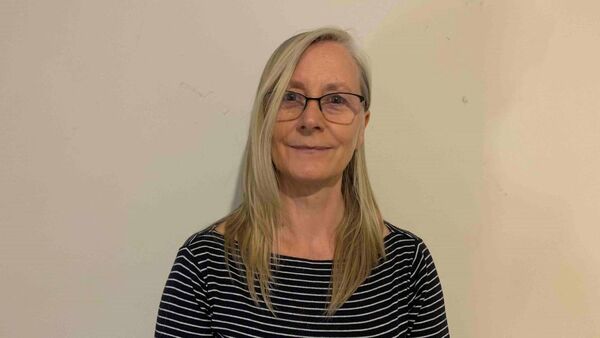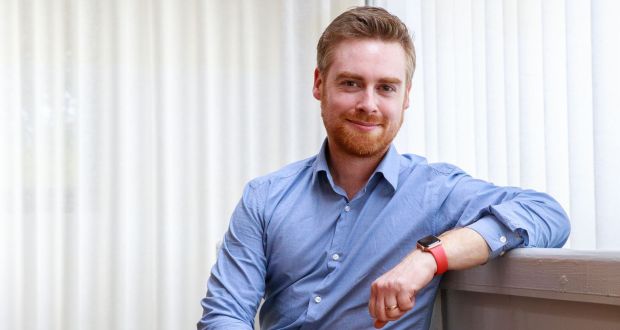Cork woman Lesley Power has been working in the world of tech for almost four decades, spanning an impressive career working for some of the industry’s top companies.
She recently joined NetApp, a world renowned cloud data services and data management company. Here, she outlines what she loves most about her job as Technical Support Manager at NetApp International HQ.
How did you get started in technical support?
It’s a bit of twists and turns that only now makes sense. I began my career as a software engineer. My husband got an opportunity to set up the Cork office of an Australian telecom company, and I joined the company and handled the engineering for the UK.
Over the years, while my children were growing up, I began managing other parts of our business: managing HR, serving as CFO, and overseeing 30 people between two offices. I realised I wanted to return to my engineering roots, so I went back to Munster Technological University to get a diploma in cloud computing.
I then saw a women’s reboot course, which helps women who may have life events that took them down a different path find an on-ramp back into the technology world. I learned how to embrace all my strengths — across the variety of roles I’d held — and see that I had much more to offer than I’d previously considered. McAfee hired me as a software development engineer, which is where I worked for four years before recently joining NetApp.
Why did you choose to work with NetApp?
I wanted a role in management, where I could blend together my managerial experience from our start-up firm with my engineering expertise. When I was first contacted by a recruiter at NetApp, he asked if I would be interested in a software engineering role, and I was honest and said that I really wanted a management role. That role wasn’t open at the time so they said they’d keep me in mind.
What I didn’t know then was that the team at NetApp — recruiters and cross-functional leaders — were actively looking at candidates’ expertise and capabilities, in addition to their roles or titles. I got a call from a cross-functional leader who asked if I might be interested in interviewing for a role as manager of tech support, which I really hadn’t considered until then.
When I thought about all aspects of my experience, I realised that I’d handled customer escalations for two years in McAfee, acting as a bridge between engineering and tech support. I also stood up a whole new engineering team in India and Chile, established an entirely new process for the team, and built the team from the ground up. It seemed like a great opportunity to grow in my career, so I applied and interviewed for this role.
What are you working on at present?
At NetApp, we are building a brand new team of first-level (L1) support for our international customers. We fly in trainers and subject matter experts from around the world to train the team on our cloud and hybrid technology, how to handle customer questions, how to help each other, and how to collaborate on resolutions.
Our first of four cohorts began at the end of May, and they’re now taking customer calls. It’s exciting to see the team take shape!

What is the best part of your job?
The people on the team: getting to know them, helping them settle in, seeing them grow, supporting them as they ask questions, helping them solve problems. I’m also loving the deep dives into cloud technology that we provide them as part of their training.
Is there a career moment you are really proud of?
I think that this role may be the defining moment of my career. I have a buzz about what I’m doing. It’s the people, the cloud technology, the ability to weave together my experience and career goals, and the opportunity for continued growth that NetApp offers.
What’s the best piece of professional advice you’ve received?
Learn to be comfortable with being uncomfortable. The only way to grow is to take ourselves outside our comfort zones — and that means we’re going to be uncomfortable for a bit. If we can get used to feeling uncomfortable but still move forward, we’re able to learn new things, find new challenges, build strength, and develop resilience.
If you could go back in time and give yourself a piece of advice at the start of your career, what would that be?
Have the confidence to speak up, to say “I don’t know,” “I don’t understand,” or “I need some help with this issue.” Admitting what you don’t know or where you need help is not a weakness, it’s actually a strength. Be the one willing to ask. You’ll find there were probably a lot of other people who had the same questions or needed the same help. And now you can help them, too.
What advice would you give to someone who is thinking about interviewing for this position?
Be open, be yourself, and be honest about what you want. Don’t try to answer the way you think an interviewer wants you to answer. Be willing to accept that you may not have an answer for all the questions you’re asked during the interview.
In fact, just today we interviewed someone who said he didn’t have specific experience in a particular area, but he’s willing to learn because he can see how it’s related to this other technology that he does have experience in. That’s the kind of openness and willingness to learn that we’re looking for.
What would you say are the key skills and capabilities necessary to be good at what you do?
Tech support requires both an ability to help customers — interpersonal skills — as well as a knack for navigating complex technological issues. So on the interpersonal side, key skills are sincerity, eagerness to learn new things, problem solving, willingness to not know but find out answers.
On the technology side, we don’t expect candidates to have a background in cloud technology — although, it’s nice if they do. It’s more important that they’re interested in expanding or adapting their current tech knowledge. We also look for experience with call centres, resolving customer concerns, and troubleshooting issues.
Which industry professionals should people be following on Twitter/ LinkedIn?
I personally follow Mike Cohn, one of the founders of the Scrum Alliance. The principles of Agile software development actually relate to so many aspects of work: focusing on customer needs, values of teamwork, responding quickly to change, and tackling big issues in bite-size pieces. The weekly tips can be applied in so many different types of work.
To find out more, head to www.netapp.com/careers










